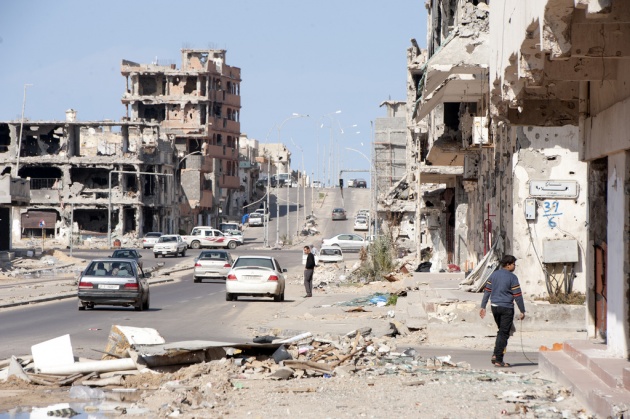The 19 January 2020 Berlin Peace Conference should prioritize accountability for crimes under international law committed in Libya and ensure that any resulting Political Agreement (PA) lays the foundations for the rule of law to be established and for human rights to become firmly entrenched in Libya, the ICJ said today.
Upholding of international human rights and humanitarian law is one of the six baskets of activities provided for by the Berlin process to end the conflict in Libya.
The other baskets relate to the Libyan-led political process; the implementation of the arms embargo, security and economic reform; and, most immediately, securing a ceasefire.
Earlier this week, efforts to end nine months of armed conflict between the Government of National Accord (GNA) and the National Libyan Army (LNA) failed to materialize, with the LNA leader refusing to sign a ceasefire.
“The Berlin Conference must send an unequivocal message to all parties that impunity will not be the price of peace,” said Said Benarbia, the ICJ’s MENA Programme Director.
“Peace can only be achieved when State officials and members of armed groups responsible for past and ongoing human rights atrocities are held to account, and when the States that have systematically violated the United Nations-imposed arms embargo are also held to account,” Benarbia added.
The ICJ calls on all those involved in the Berlin process to ensure that any resulting PA include provisions on the right to truth, justice, reparation and guarantees of non-recurrence, including commitment to institutional reforms to secure accountability and victims’ rights.
The process should also support calls by civil society organizations, the UN Special Representative of the UN Secretary-General in Libya, and the Office of the High Commissioner for Human Rights for the establishment of an accountability mechanism for Libya at the 43rd session of the UN Human Rights Council.
“Accountability is a key, not an obstacle to the establishment of the rule of law in Libya,” said Kate Vigneswaran, the ICJ’s MENA Programme Senior Legal Adviser.
“The Berlin Conference should support the establishment of a Commission of Inquiry or similar mechanism with a mandate to document human rights violations and abuses in the country, identify those responsible for them, and collect and preserve evidence for use in future criminal proceedings,” she added.
In a briefing published today, the ICJ also urged all parties involved in the Berlin process to ensuring that any resulting PA provide: for armed and security forces to be subordinated to civilian authorities; for any process of integrating officials and members of armed groups in the State’s armed and security forces to be conducted through adequate vetting standards and processes; for the right of all Libyans to participate in the conduct of public affairs to be enshrined and fully complied with; for the independence and accountability of the judiciary and the Office of the General Prosecutor to be secured; and for universally recognized human rights to be protected in Libya’s Constitution and laws.
Contact
Said Benarbia, Director of the ICJ Middle East and North Africa Programme, t: +41-22-979-3817; e: said.benarbia(a)icj.org
Kate Vigneswaran, ICJ Senior Legal Adviser, t: +31624894664, e: kate.vigneswaran(a)icj.org, twitter: @KateVigneswaran
Libya-ICJ recommendations-Advocacy-Analysis brief-2020-ENG (full briefing paper, in PDF)

